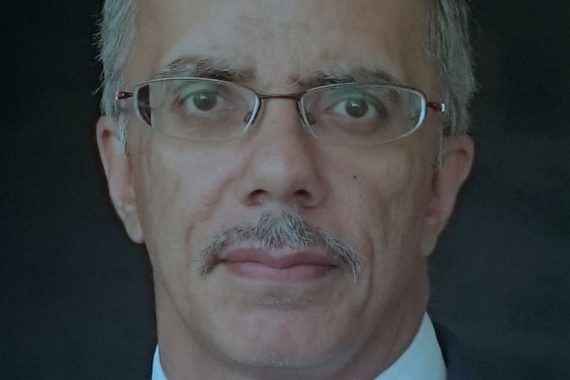I’m cautiously optimistic about what NHS England has achieved this year

December marked one year in my role as director of primary care for NHS England. As you might expect, I haven’t instantly managed to reverse the impact of a decade of underinvestment and the pressures rising demand is placing on GPs. However, what I have done is contribute to the NHS England’s understanding of the issues general practice faces, argue for greater investment, help develop a range of practical initiatives and lay them out in a five-year strategy for how we start to turn things around.
I do believe we are making progress in some of the key issues
I appreciate that the broad scope of the GP Forward View can sometimes feel like an array of initiatives. The new NHS England website should also make it easier to get a picture of everything that is happening now, as well as details of what is coming next but this feels like a good point to reflect on where we have got to and how it ties together.
Our focus remains on stabilising practices and although we have accelerated ‘getting the money out of the door’, we also need to work with CCGs, LMCs and others to ensure this translates into practical frontline help. In addition to £33m in the 2016/17 contract, we have committed to re-running the Winter Indemnity Scheme this year and covering the increased practice costs related to GP indemnity in 2017/18 and 2018/19.
We have launched the £30m three-year General Practice Development Programme with approximately a third of all practices already in line to receive support and secured the funding for a nationwide increase in general practice capacity by 2019 which builds on the 57 Access Fund sites currently covering 17 million people. This is to support both in-hours pressures, and locally determined need out of hours at evenings and weekends.
To ease the burden or bureaucracy we have made six fundamental changes to the Standard Contract designed to stop unnecessary hand-offs to general practice from hospital episodes and are working closely with the GMC and CQC to reduce the frequency of inspections for good and outstanding practices and streamline all reporting, monitoring and regulatory processes.
We have started to tackle the workforce deficit, with more GPs in training than ever before, improvements to the induction and refresher scheme and the retainer schemes, £20k bursaries in under-doctored areas and the launch of phase two of the Clinical Pharmacy Scheme to name a few.
So I do believe we are making progress in some of the key issues that have undermined general practice for too long but of course challenges remain. For example, we need to make sure we embed the doctor-patient relationship in to the core of our plans, whilst making the most of the opportunities offered by improved use of self-care, technology and collaboration across practices and wider stakeholders. Another will be keeping people on board while the improvements take effect.
As a practising GP, I am well aware that all the improvements the GPFV is bringing might not have fully filtered down to consulting rooms yet. The daily pressures and negative headlines continue. However, this progress will continue to flow through the system and decision-makers are now strengthening general practice in the knowledge that without this, the acute sector will fall over.
I have noticed over the last year that the mood music from GPs I meet has begun to change. At the LMC conference a year ago the view was that ‘general practice is being systematically destroyed’. This was followed in the summer by ‘we don’t believe the General Practice Forward View is real’. Now it seems to be ‘we believe it, but it’s not happening fast enough’. Progress of sorts and I do understand the sentiments expressed.
So we’ve reached a small milestone of what will be a long journey. I am under no illusion from my own experience, and the many conversations I have with struggling practices each week, that the key to turning morale around is to make general practice more attractive. At the heart of this sits feeling in control of a manageable workload again. This in turn helps with recruitment and stability issues. One of my personal missions continues to be reversing the tide of low value burdensome activities encumbering general practice now, hence the changes to the Standard Contract with hospitals.
During my first year I have learned two valuable lessons. The first is that robust execution on a positive strategy is insufficient. The GPFV will be judged on whether people know what is happening, and also if they think we are being honest about where we fall short, and why this is the case. The second is that there is probably nothing I can say that won’t attract critics. I used to be one. But after 20 years as a GP I reached the stage where I wanted to do more than describe the problems. I want to work with others to see past the noise, navigate the complexities and find the solutions. My own cautious optimism continues based on seeing growing numbers of people who feel like I do, and are getting on with doing all they can to improve things now.
Pulse July survey
Take our July 2025 survey to potentially win £1.000 worth of tokens













